The Best Ways to Assess Hard and Soft Skills Effectively
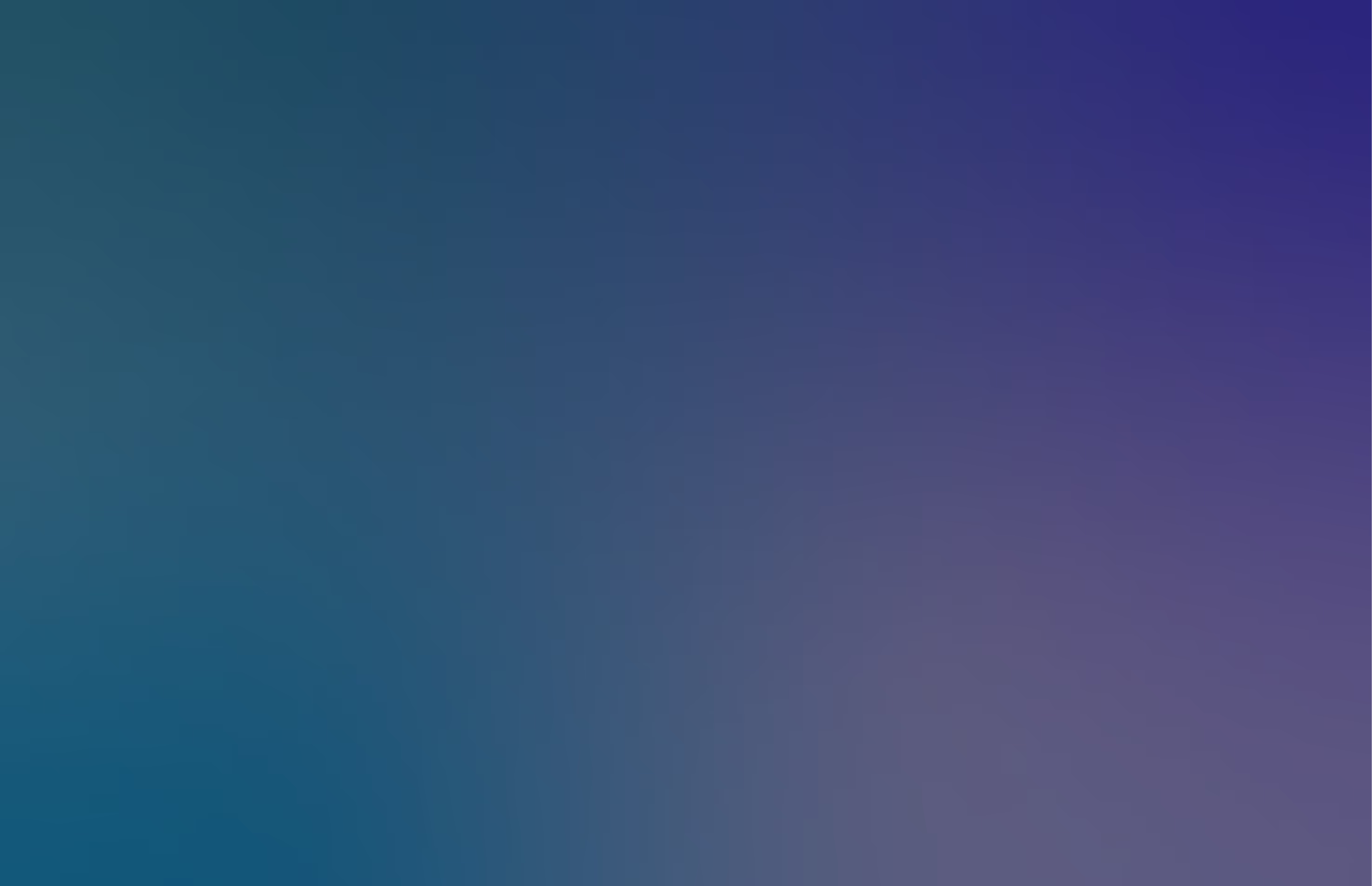


Traditionally, hard skills have been seen as more essential to how a person would perform in a role, and were therefore prioritised over soft skills, which were deemed to be too “fuzzy”. However, this norm is quickly being turned on its head, as hiring managers begin to recognise the importance of soft skills. A 2016 study from Wonderlic found that 93% of employers said soft skills are either an “essential” or “very important” factor in hiring decisions.

What are soft skills?
Soft skills are the inherent characteristics or skills that make up an individuals personality traits. Such traits or skills include: communication, collaboration, sociability, emotional intelligence and cognitive thinking. In respect to the working environment, soft skills demonstrate what a candidate will bring to a role from a personality perspective and their ability to interact and work with others.
Why change from focusing on hard skills to soft skills?
More and more, businesses are moving towards a people-oriented approach. Culture add is becoming increasingly important to both employees and employers. A Columbia University study revealed that the likelihood of job turnover at an organisation with high company culture is a mere 14%, whereas the probability of job turnover in low company cultures is 48%.
As well as this, companies are placing greater emphasis on collaborative-based work. A Harvard Business Review study found that the time managers and employees spend on collaborative activities has increased by more than 50% in the past 20 years.
The Mckinsey Global Institute Workforce Skills Model predicts that automation and A.I. will accelerate the shift in skills that the workforce needs, and by 2030, the number of hours worked using cognitive skills and social and emotional skills will greatly increase.
In fact, its research suggests that the demand for higher cognitive skills, such as creativity, critical thinking, decision making, and complex information processing, will grow through 2030 by as much as 14% in Europe.
This changing business landscape means that what employers are looking for is changing too. It’s now more important than ever that employees possess the interpersonal skills to effectively relate to both co-workers, and clients. Soft skills may be harder to quantify, but they are now arguably even more important than their more technical counterparts.

The best way to assess soft skills
While it is relatively straightforward to test someone’s hard skills, soft skills are a little more tricky to detect. Below we’ve rounded some of the best ways to determine if your candidate has the soft skills you’re looking for.
- A.I. Video Interviewing: Not only is A.I. a great time saver when it comes to the recruiting process, it is also one of the most effective ways of assessing soft skills. One-way video interviews gives A.I. technology great markers for assessing a candidate’s non-technical abilities. Using psychometrics and attitude testing, A.I. is able to assess traits such as extroversion, conscientiousness, and teamwork. It also has the added bonus of removing unconscious bias from interviews.
- Group Interviews: Group interviews are efficient and can save time in the recruiting process. As well as this, they afford the interviewer the chance to see how each candidate interacts with others. In this type of interview candidates have the chance to display teamwork, communication and even leadership skills.
- Culture Add: Culture add refers to how well a potential candidate will adapt to your company’s culture, including its mission, values, attitudes and behaviours. A simple but effective way of assessing this to allow potential candidates to interact with your employees for a period of time and see how they get on. Note that a good culture add doesn’t mean hiring someone the exact same as your current employees, but rather someone who will make a positive addition to your workplace.
- Game Based Assessments: Although this methodology has been around for a while in the form of puzzles and situational judgement tests, one of the most prominent new recruitment trends is video game-based skills assessments. These assessments can be anywhere from 10 minutes to 30 minutes and usually involve a traditional situational judgement test delivered in the form of a fun and interactive story. This is a new way of assessing soft skills that is both engaging and fun for candidates.
In a more traditional interview setting, following these suggestions from The Surprising Power of Questions can also help to assess a candidate’s soft skills:
- Favour follow-up questions
- Know when to keep questions open-ended
- Get the sequence right – tough questions first can make people less willing to open up
- Use the right tone
INSERT-CTA
How to maintain a good mix of hard and soft skills
As we have seen, soft skills are vitally important in the modern workplace. However, an ideal candidate should have a good mix of hard and soft skills. Attract the talent you want by making sure to outline both hard and soft skills in your job descriptions, and as much as possible, try to discard bias in interviews and keep an open mind about all candidates.
While it may seem that soft skills are something inherent, which a candidate either has or doesn't have, it’s important to remember that both hard and soft skills can be taught. Leadership, communication and time management are all things which a candidate can learn on the job, through training and mentorship.
Though diametrically different, ultimately hard skills and soft skills can and should complement and enhance each other. A person who is great at communicating but lacks basic job requirements may be looked over in favour of other more experienced candidates. Likewise, a person who is difficult to be around, isn’t likely to make it very far in any job, no matter how technically proficient.
INSERT-LINE
Next time you’re creating a job description, or interviewing a potential candidate, remember to keep in mind both hard and soft skills. This is essential to help you find the best suited and most well rounded employee for your business.
What is Occupop?
Occupop recruitment software company that wants to help you effectively screen for all types of skills while making your hiring process faster, easier and stress-free. With the help of AI technology, Occupop can help you effectively screen for soft skills during the recruitment process and greatly reduce your recruitment admin, time and costs. We’ll post your job descriptions across 20+ recruitment channels, score and filter your CVs, and give your hiring team the tools to keep up with this rapidly-changing industry.
Visit www.occupop.com to learn more today!
Summary Points
Why Change From Focusing on Hard Skills to Soft Skills?
Research suggests that the demand for higher cognitive skills, such as creativity, critical thinking, decision making, and complex information processing, will grow through 2030 by as much as 14% in Europe.
This changing business landscape means that what employers are looking for is changing too. It’s now more important than ever that employees possess the interpersonal skills to effectively relate to both co-workers, and clients.
How to assess for soft skills?
- A.I. Video Interviewing
- Group Interviews
- Culture Add
- Game Based Assessments
Simple. Beautiful.
Recruitment Software.
HR updates sent straight to your inbox
You might also like...


Manage your entire hiring process simply, from engagement to management, hiring and onboarding
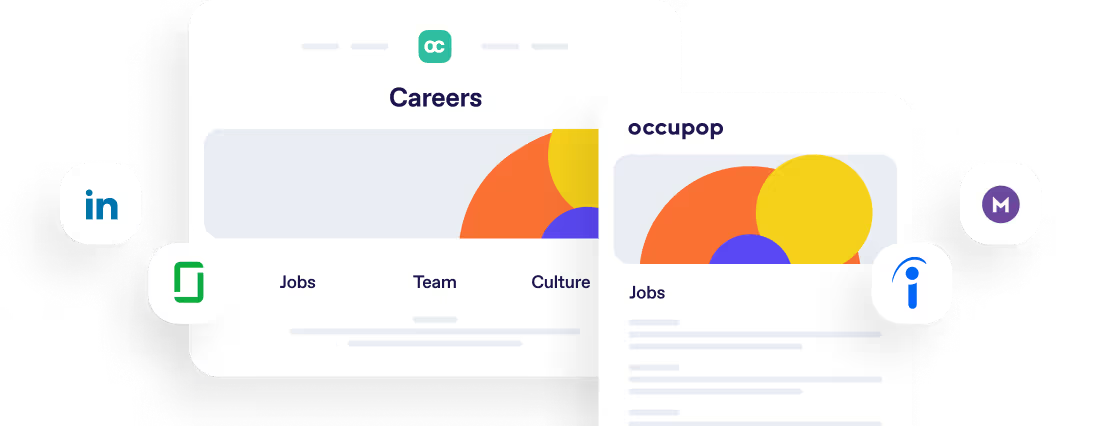

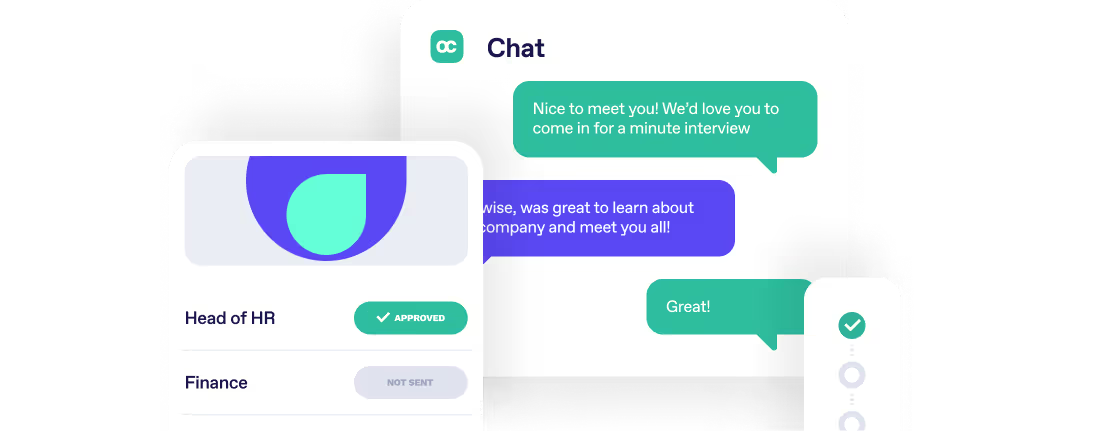

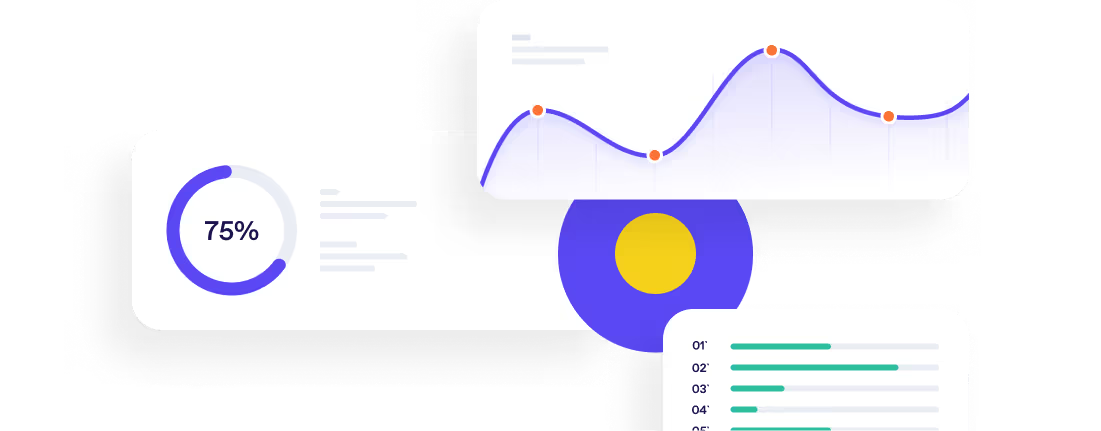

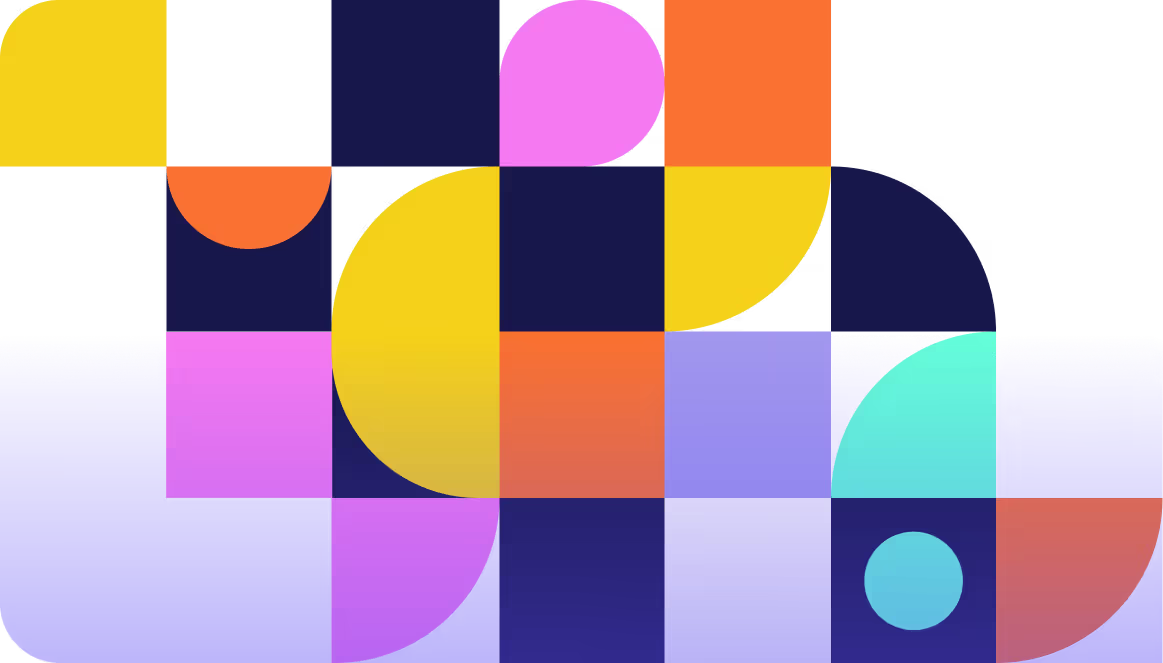
Simple. Beautiful.
Recruitment Software.
Recruitment Software.






